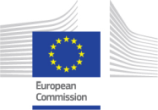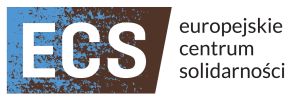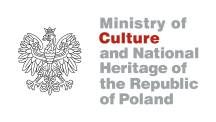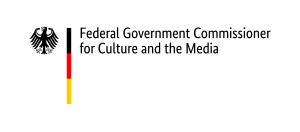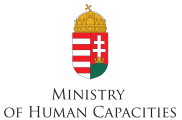In 2014 we mark the round anniversaries of some of the most important turning points in European history: 100th anniversary of the Great World War, 75th anniversary of the outbreak of World War II, 25th anniversary of 1989, and last but not least 10th anniversary of the enlargement of the European Union to include former communist bloc countries. These anniversaries are an excellent starting point for a debate on the Eastern Bloc countries’ transition from dictatorship to democracy and a debate on the integration of the former communist countries ten years after the EU expansion.
Turning points in 20th-century European history
European Remembrance Symposium 2014
9-11 April 2014, Prague
Programme
Symposium / Prague 2014
09/04/2014 Wednesday
16:00
Opening
Czernin Palace, Ministry of Foreign Affairs of the Czech Republic
Lubomír Zaorálek, Ministry of Foreign Affairs of the Czech Republic
Małgorzata Omilanowska, State Secretary in the Ministry of Culture and National Heritage of Poland
Jiří Drahoš, Chairman of the Academy of Sciences of the Czech Republic
Sophie Beernaerts, Head of Unit, Europe for Citizens Programme, European Commission
Jan Rydel, Chair of the Steering Committee, European Network Remembrance and Solidarity
Małgorzata Omilanowska, State Secretary in the Ministry of Culture and National Heritage of Poland
Jiří Drahoš, Chairman of the Academy of Sciences of the Czech Republic
Sophie Beernaerts, Head of Unit, Europe for Citizens Programme, European Commission
Jan Rydel, Chair of the Steering Committee, European Network Remembrance and Solidarity
16:45
Lecture: Turning points in European History: 1914-1939-1945-1989-2004
Marci Shore, United States
17:30
Panel discussion: Turning points of European Remembrance. Different approaches
James Mark, University of Exeter, UK
Heidemarie Uhl, Austrian Academy of Sciences
Włodzimierz Borodziej, Warsaw University/University of Jena, Poland
Moderator: Pavel Tychtl, European Commission
Heidemarie Uhl, Austrian Academy of Sciences
Włodzimierz Borodziej, Warsaw University/University of Jena, Poland
Moderator: Pavel Tychtl, European Commission
18:30
Opening of the exhibition (BStA): Dictatorship and Democracy in the Age of Extremes: Spotlights on the History of Europe in the Twentieth Century
Anna Kaminsky, Director of the Federal Foundation for Reappraisal of the SED Dictatorship
19:00
Reception
10/04/2014 Thursday
9:00 - 13:00
Projects and institutions exhibition
Foyer of the Czernin Palace, Ministry of Foreign Affairs of the Czech Republic
9:00
Introduction
Czernin Palace, Ministry of Foreign Affairs of the Czech Republic
Oldřich Tůma, Director, Institute of Contemporary History, Czech Academy of Sciences
Basil Kerski, Director, European Solidarity Centre
Basil Kerski, Director, European Solidarity Centre
9:15
Panel discussion: The collapse of communism and its aftermath. The legacy of Cold-War period in Europe
Laure Neumayer, University Paris 1, France
Michal Kopeček, Institute of Contemporary History, Czech Republic
Łukasz Kamiński, Institute of National Remembrance, Poland
Moderator: Matej Spurný, Institute of Contemporary History, Czech Republic
Michal Kopeček, Institute of Contemporary History, Czech Republic
Łukasz Kamiński, Institute of National Remembrance, Poland
Moderator: Matej Spurný, Institute of Contemporary History, Czech Republic
10:45
Coffee break
11:15
Panel discussion: The next generation. New interpretations of the recent European history
Lenka Koprivova, POST BELLUM, Czech Republic
Sandra Vokk, Unitas Foundation, Estonia
Irit Dekel, Humboldt University, Germany
Moderator: Zofia Wóycicka, House of European History, Brussels
Sandra Vokk, Unitas Foundation, Estonia
Irit Dekel, Humboldt University, Germany
Moderator: Zofia Wóycicka, House of European History, Brussels
13:00
Lunch break
14:30
Presentation and film about the Memorial of Lidice
15:30
Excursion to the Memorial of Lidice
20:00
Social evening
11/04/2014 Friday
9:00 - 14:00
Projects and institutions exhibition
Foyer of the Czernin Palace, Ministry of Foreign Affairs of the Czech Republic
9:00
Simultaneous Workshops
Czernin Palace, Ministry of Foreign Affairs of the Czech Republic
1. Europe for Citizens / European Commission
2. Museums and Projects about the Great War / Imperial War Museum
3. Reflecting Remembrance in History Education. Three case studies on Turning Points in Europe's 20th century History from Northern Ireland, Slovakia and Ukraine / Euroclio
4. Sound in the Silence. Art and historical education / Die Motte
5. Legacy of 1989 and the collapse of communism. Presentation and discussion about successful international projects / European Platform Memory and Conscience
2. Museums and Projects about the Great War / Imperial War Museum
3. Reflecting Remembrance in History Education. Three case studies on Turning Points in Europe's 20th century History from Northern Ireland, Slovakia and Ukraine / Euroclio
4. Sound in the Silence. Art and historical education / Die Motte
5. Legacy of 1989 and the collapse of communism. Presentation and discussion about successful international projects / European Platform Memory and Conscience
12:00
Discussions with representatives of the organizing institutions
European Network Remembrance and Solidarity
European Commission
Institute of Contemporary History, Czech Academy of Sciences
Federal Foundation for the Reappraisal of the SED Dictatorship
European Solidarity Centre
European Commission
Institute of Contemporary History, Czech Academy of Sciences
Federal Foundation for the Reappraisal of the SED Dictatorship
European Solidarity Centre
13:00
Lunch break
14:00
Final lecture
Pieter Lagrou, Free University Brussels, Belgium
15:00
Conclusions
Dušan Kováč, Slovak Academy of Sciences
Siobhan Kattago, Tallinn University, Estonia
Moderator: Oldřich Tůma, Czech Republic
Siobhan Kattago, Tallinn University, Estonia
Moderator: Oldřich Tůma, Czech Republic


